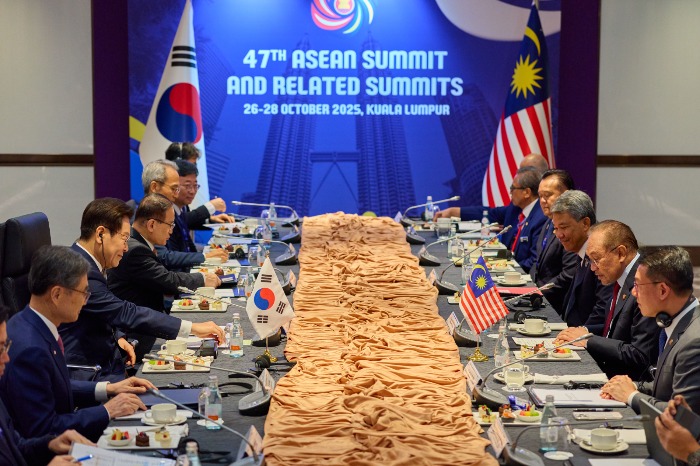UPDATE: South Korea and Malaysia have just finalized a landmark free trade agreement, a pivotal move that aims to significantly boost exports of Korean automobiles and steel products to Malaysia. The deal was sealed during the 47th ASEAN summit in Kuala Lumpur on October 26, 2025, after an intense six-year negotiation process that began in 2019.
This agreement marks a crucial step in South Korea’s strategy to enhance economic ties with Southeast Asia, especially as it seeks to diversify trade away from heavy reliance on the United States and China. At the summit, South Korean President Lee Jae Myung announced ambitions to elevate annual trade with ASEAN countries to $300 billion, a significant increase from last year’s $192.8 billion.
Although South Korea and Malaysia have enjoyed relatively free trade since the 2007 ASEAN-Korea FTA and the 2019 Regional Comprehensive Economic Partnership, tariffs on key export sectors like automobiles and steel had remained in place. This new bilateral deal dismantles those barriers, positioning Korean automakers and steel producers for unprecedented access to one of ASEAN’s most promising markets.
Under this agreement, Malaysia will cut or eliminate tariffs on 682 products, while South Korea will reciprocate by reducing tariffs on 288 products. Notably, tariffs on electric vehicle components will be abolished, and duties on finished electric SUVs will drop from 30% to 15%. This change allows Korean automobile manufacturers to tap into Malaysia’s fast-growing car market, which is the second-largest in ASEAN, dominated by local brands like Proton and Perodua.
For steel producers, tariffs on nine critical cold-rolled products will be eliminated, while rates on other products such as hot-rolled steel will decrease from 15% to 10%. In exchange, South Korea will open its markets to Malaysian agricultural and marine products, including tropical fruits like durian and pineapples, alongside shellfish.
Moreover, Malaysia is set to remove foreign ownership limits in its automotive manufacturing sector, a move anticipated to attract more Korean investments in electric vehicles and component assembly.
Officials view this agreement as a stepping stone towards expanding bilateral FTAs with other ASEAN members, building on previous deals with Singapore, Vietnam, Cambodia, Indonesia, and the Philippines.
Although the pact requires domestic ratification in both countries before it can take effect, trade officials in Seoul are optimistic that it will strengthen economic cooperation and mitigate geopolitical risks amid escalating tensions in the US-China trade dispute.
This groundbreaking agreement marks a pivotal moment for both nations, opening doors for increased trade and investment that could benefit millions and transform regional economic dynamics.







